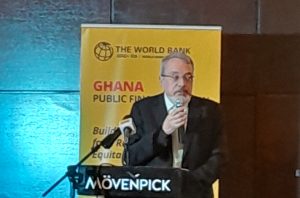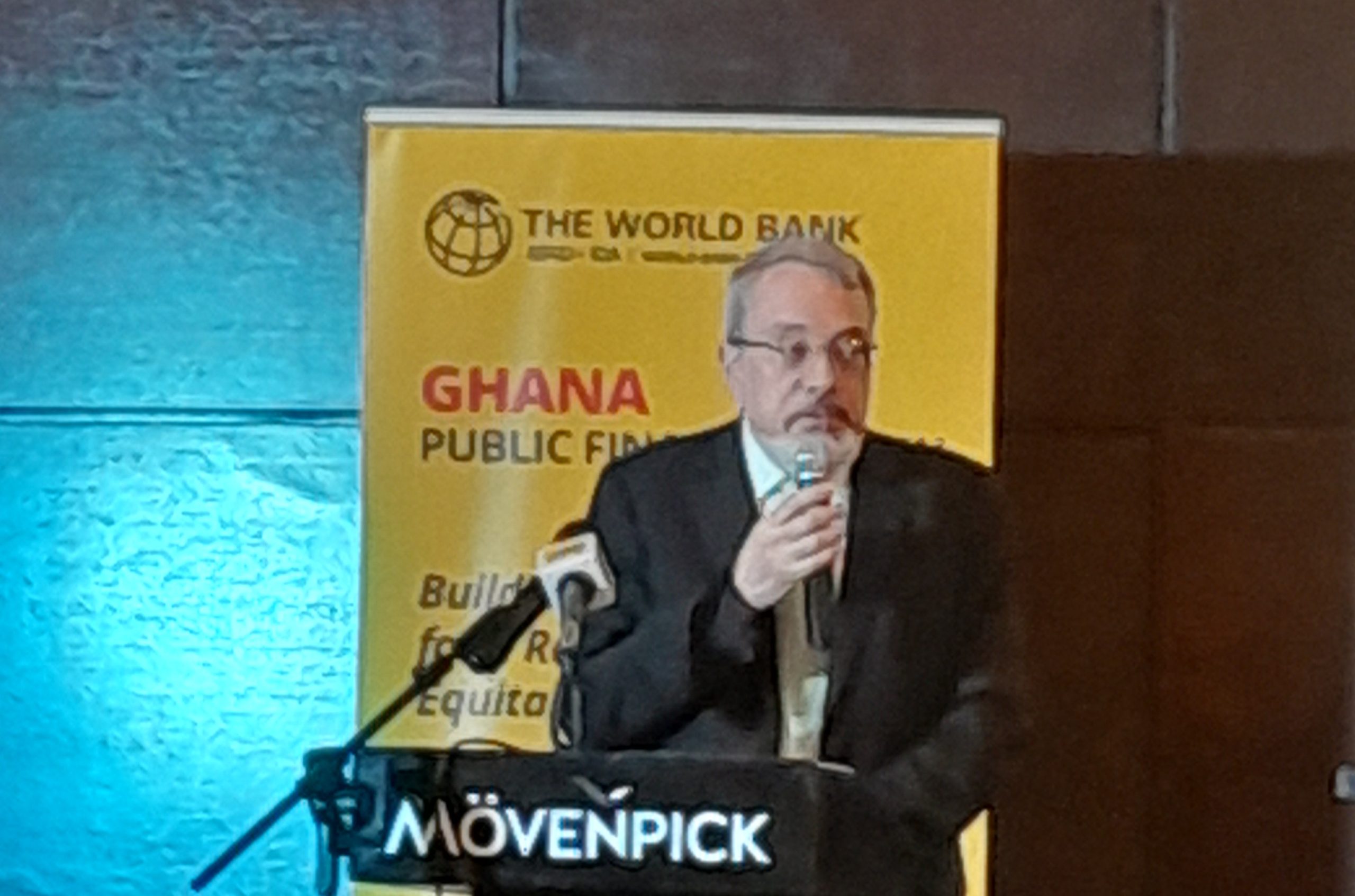
Accra, Ghana//-The World Bank Group’s latest Public Finance Review report, titled ‘Building the Foundations for a Resilient and Equitable Fiscal Policy’ has urged Ghana as a matter of urgency to reduce rigid and non-priority expenditure in public sector wage bill, goods and services, transfers to government agencies.
The report which was launched in Accra today however called on the country which is currently on IMF bailout to priority capital investment projects that are critical to the socio-economic development of the West African country.
Presenting the report, two senior Economists of the World Bank and co-authors of the report, Madam Tamoya Christie; and David Elmaleh noted that Ghana should ensure that financing sources minimize macro-fiscal risks and are adapted to financing needs.
Another recommendation they proffered in the report to the country is to accelerate revenue mobilization efforts, closing both the policy and compliance gaps.
In the medium-term strategy, the report recommended for the removal of VAT exemptions as well as reforming the corporate income tax (CIT) by phasing out tax holidays and exemptions and strengthening safeguards against profit-shifting.
Strengthen tax administration, improve compliance and broaden the tax base. Ensure the Ghana Revenue Authority (GRA) cleans the taxpayer register and ledgers; complete the installation of the Integrated Tax Administration System (ITAS), they added.
Ghana also needs to tackle the root causes of the crisis and build the foundations of a robust fiscal system, the senior economists stated.
“The report’s recommendations are critical to ensuring Ghana’s fiscal stability and fostering sustainable economic development. The World Bank Group stands ready to support Ghana in implementing these strategies to achieve lasting prosperity and resilience.”
In his welcome address, the World Bank Country Director for Ghana, Liberia and Sierra Leone, Robert Taliercio said: “Ghana needs to persist in its ambitious fiscal consolidation efforts, ensuring that adjustments are both fair and sustainable”.
He continued: “It is crucial to protect pro-poor and pro-growth investment, while enhancing domestic revenue mobilization. Additionally, Ghana must address the increasing fiscal liabilities stemming from the energy and cocoa sector.”
Ghana’s fiscal deficit averaged around 4% of GDP from 2008 to 2019, double that of 2000 to 2007. During the same period, total expenditures averaged 19% of GDP—6 percentage points higher than in 2000 to 2007.
Looking at the precarious economic situation, Mr Taliercio assured the new government that; “the World Bank is key partner to the Government of Ghana in supporting the country’s “reset” agenda towards economic transformation and fiscal sustainability – a cornerstone for sustainable growth”.
This event is an opportunity for us to collaborate, to learn, and to strategize how we can build a more resilient and prosperous Ghana”.
The report highlighted that Ghana’s impressive GDP growth of 6.8% annually from 2008 to 2019 was driven by oil production and debt accumulation, leaving the country highly vulnerable to global shocks.
It noted that Ghana’s recent debt crisis was fuelled by weak expenditure controls, inefficient public spending, underperforming revenue collection, and costly borrowing.
Despite taking decisive steps to stabilize its economy since 2022, Ghana needs to accompany fiscal consolidation with structural reforms to address the root causes of the crisis and support economic transformation and sustainable development.


